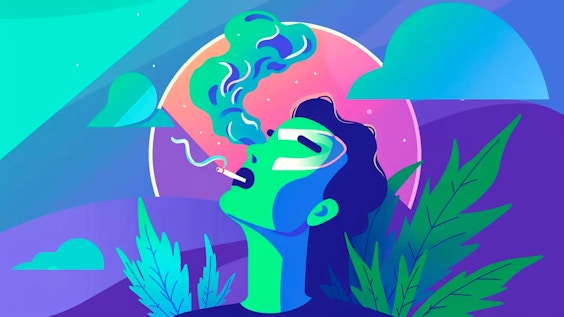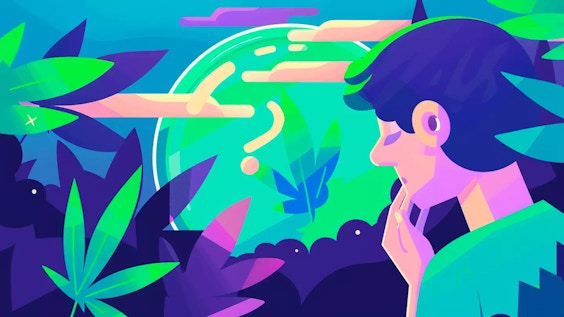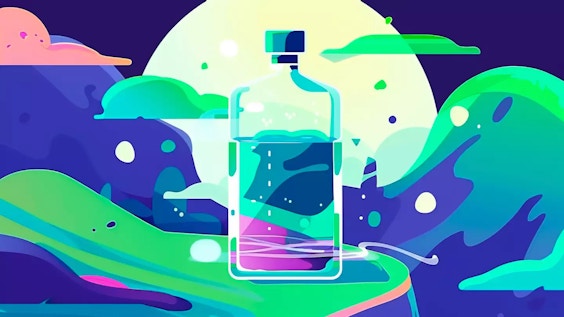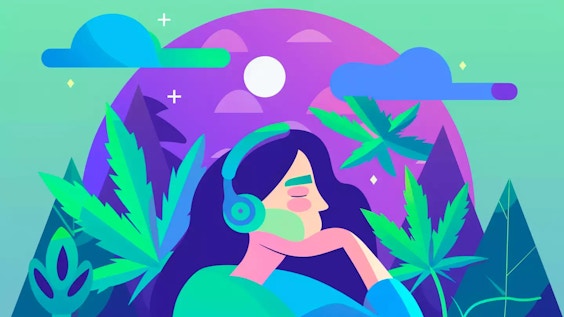I Am Sober is a free app that helps you get some control back in your life.
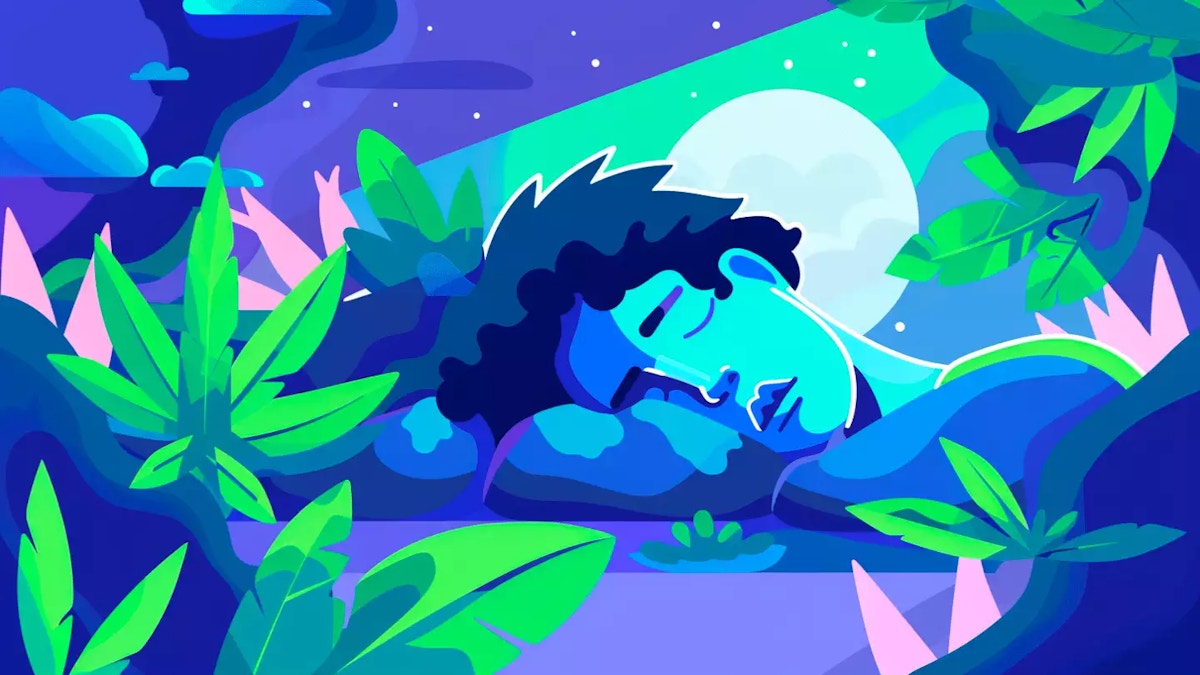
Marijuana and Sleep
Last Updated: Fri, March 29, 2024Marijuana is the most widely used illicit drugs across the United States. More and more states are starting to legalize marijuana. While over 50% of American adults say that they have tried marijuana at least once in their lives, 35 million smoke at least once per month. With so many people smoking marijuana these days, you would think that there would be accurate information about marijuana. However, this isn’t always the case. It’s true that more research is being done into marijuana, but one of the largest stereotypes remains: that marijuana helps you sleep.
How does marijuana affect my sleep?
Many people, including long-time marijuana users, claim that smoking marijuana helps them get to sleep. However, studies have shown that this isn’t quite the case.
Before we get into the details, it’s important to note that there are three main strains of cannabis: indica, sativa, and a hybrid of the two. While some claim that the indica strain in particular helps them to sleep, there has been little research on the effects of specific strains of marijuana and sleep. However, there have been many studies conducted on marijuana in general and its effects on sleep.
Research has shown that long-time marijuana use can lead to insomnia. For many weed-smokers, this is the opposite of the desired effect. It’s true that sometimes, marijuana can make your body feel relaxed and even drowsy. However, research has shown that those who smoke marijuana daily have much higher rates of insomnia than those who don’t smoke at all. We don’t know exactly why marijuana increases insomnia, some experts think that it may have to do with the links between marijuana and anxiety.
How does marijuana affect the different stages of sleep?
Marijuana effects each sleep stage. Sleep experts categorize sleep as having either 4 or 5 stages. In one categorization, there are five stages of sleep: stage 1, stage 2, stage 3, stage 4 (Stages 3 and 4 are deep sleep), and stage 5 (Rapid Eye Movement, or REM sleep). The first four sleep stages are referred to as non-rapid eye movement (NREM) sleep. Sleep is lightest during stage one sleep. It deepens in stage 2. It gets even deeper in stage 3, and is deepest in stage 4. Although we dream to some extent in the first four stages of sleep, our most vivid dreams are during stage 5, or REM sleep. During REM sleep, our heart rate goes up, and our body is paralyzed.
Marijuana can have a positive impact on stage 1 and stage 4 sleep in some people because marijuana can help the body relax and fall asleep easily. While marijuana doesn’t seem to have any impact on stage 2 sleep, it can be beneficial to stage 3 and stage 4 sleep. This is because, during these phases of deep sleep, the body is likely still at ease due to the marijuana (unless marijuana causes anxiety). However, the real problem comes in REM sleep. During this sleep phase, marijuana can have disastrous effects.
How does marijuana affect my dreaming?
Vivid dreaming occurs during REM sleep. Marijuana reduces REM sleep, which results in less vivid dreaming. We don’t yet fully understand the purpose of REM sleep and dreaming. One speculation is that REM sleep helps us to integrate waking experiences and to get rid of unhelpful thoughts and perceptions. Whatever the mysterious purpose of REM sleep might be, we know that marijuana impairs REM functioning.
How does withdrawal from marijuana affect my sleep?
Marijuana withdrawal can cause insomnia and strange dreams. It can take longer to fall asleep. There is reduced deep sleep. There can also be a rebound of REM sleep.
Insomnia does improve with time as withdrawal symptoms decrease. We asked people in our app to report on when their quality of sleep decreased on each milestone they reached.
As you can see above, days 1-5 tend to be the worst.
When will my sleep quality start to improve in sobriety?
For those who used to use marijuana regularly, it’s fair to expect an adjustment period after getting sober. We also asked people to report when their quality of sleep improved on each milestone they reached.
Most people experienced their worst quality of sleep after three days sober. However, the majority of former marijuana users report that by two weeks sober, their sleep quality had improved drastically. And by 6 weeks, the percent of users that said their sleep improved peaked.
What are ways I can improve my sleep?
There are several ways that you can improve the quality of your sleep. For those in the process of getting sober from marijuana, it’s likely that you are experiencing poor sleep. However, take a few of these tips for better sleep and you’ll be amazed by the results:
-
Cut out caffeine after 3pm. If this doesn’t help aid sleep, cut out caffeine entirely.
-
Eliminate screen time before bed. Screens emit blue light, which impairs sleep. If you have to use a computer, wear yellow glasses to filter out blue light.
-
Nap for no longer than 40 minutes during the day..
-
Go to bed and wake up at the same time every day.
-
Take a melatonin supplement.
-
See your doctor to consider a short-term sleeping aid.
-
Reduce or eliminate alcohol consumption- especially before bed.
-
Exercise regularly.
-
Meditate.
In all, marijuana may help your body feel more relaxed- and may even help you fall asleep faster- but it can drastically reduce the quality of your sleep, especially by reducing dreaming. Although we don’t fully understand the purpose of REM sleep, it is likely harmful that marijuana reduces REM sleep. It is possible that a reduction in REM sleep contributes to some of the many adverse consequences of chronic marijuana use.
If you are an avid marijuana user and feel as though your sleep quality is decreasing, don’t worry. You aren’t alone. Many others have been where you are and have taken back control of their lives by getting sober. It’s not an easy road, but it’s a rewarding one- and we are here to help.
More resources:
I Am Sober is a free app that helps you get some control back in your life.
